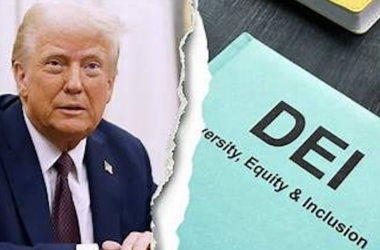Europe’s energy infrastructure is undergoing seismic shifts, albeit with little political vision to guide the way.
The possible de-escalation of the Ukraine war under the Trump administration, together with widespread dissatisfaction over rising energy prices on account of sanctions on Moscow, may lead to a relative normalization of EU-Russian relations, and renewed energy imports.
For countries in Europe’s southern fringe, however, the break with Russia provided an opportunity to seek nearer sources of energy, namely across the Mediterranean, which would also increase their strategic importance.
Italy’s Energy Minister, Gilberto Pichetto Fratin, has made a call to the European Union to extend its emergency gas price cap and lower it to 60 euros per megawatt hour. Pichetto Fratin stated in a radio interview, “The EU should extend the cap—we’ve formally requested it—but it must be lowered to 50 or 60 euros now.” He further added that, “This measure would curb speculative financial activities that inflate costs for households and businesses without reflecting the actual value of the raw material.”
This is aimed at mitigating the risk of a potential energy price surge. Concerns about a fresh energy crisis have intensified after Ukraine declined to renew a gas transit deal with Russia, effectively ending decades of Moscow’s dominance in Europe’s energy markets.
The EU’s price cap only triggers if gas prices in Europe surpass 180 euros per megawatt hour, a threshold not seen since the early stages of the Russia-Ukraine war. The debate surrounding extending and adjusting this cap has become a battleground, with some European leaders advocating for a more proactive approach to stabilize energy costs.
Goldman Sachs, for its part, has warned that reduced Russian gas flows could push prices to around 84 euros per megawatt hour. These warnings have fuelled the ongoing debate about the adequacy of current energy policies in Europe, highlighting the uncertainty in the market.
Despite the risks, Fratin has reassured Italians that the country’s gas reserves are sufficient to avoid disruptions, stating, “Our gas storage is nearly 80% full, so there’s no cause for alarm.” Indeed, since 2022, Italy has steadily increased its capacity to import liquefied natural gas (LNG) as part of a broader effort to replace Russian supplies. A new floating LNG terminal, expected to begin operations in early April, will boost Italy’s import capacity to 28 billion cubic meters annually—the same amount the country received via Russian pipelines in 2021.
In particular, Algeria has become a significant supplier to Italy. Securing alternative gas supplies and advocating for policy changes at the EU level are critical components of energy security and economic stability, but also in adjusting Europe’s internal balance of power.
Indeed, if energy imports from Russia increase, Italian attempts to lobby for diversification and North African imports will grow face resistance, possibly opening up a greater breach between Meloni and the V4 countries. To this we may add the Commission’s desire to undergo an EU-wide Green transition. As always, an important driver of European energy policy remains the contest between Member States over their relative strategic centrality and access to energy transit revenue.




